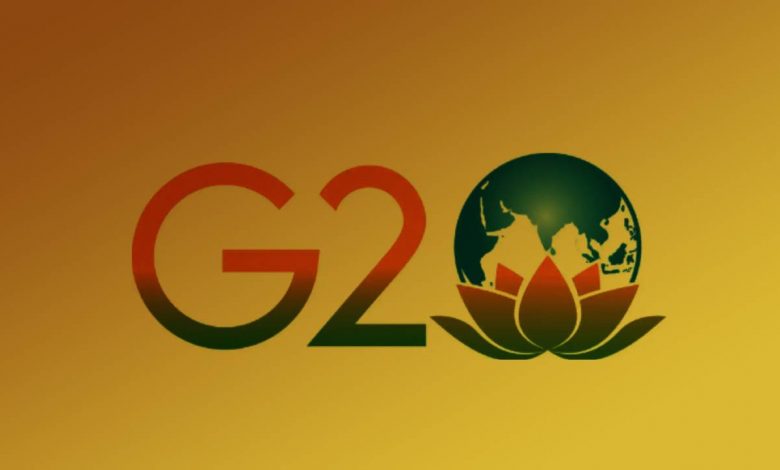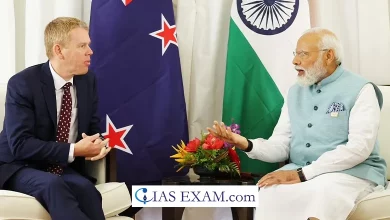Daily Current Affairs for UPSC
17th annual summit of G20

Topic- International Grouping and Agreements [GS Paper-2]
Context- Recently, the 17th annual summit of G-20 was hosted by the Indonesian G20 presidency in Bali.
Key Highlights
- The leaders of the G-20 nations have gathered at Bali’s Nusa Dua resort for the 17th summit of the world’s most advanced economies.
- The theme of G20 summit 2022 is “Recover Together, Recover Stronger”.
- It focuses on global economic recovery, global health architecture, digital transformation, sustainable energy transition and climate change, among other topics.
- G-20 countries as a whole represent 85% of the global GDP, 75% of global trade and 66% of the world population.
- While the main focus is on post-pandemic recovery and dealing with energy and food security impacted by the Russian war in Ukraine, much interest is around which leaders choose to hold bilateral summits on the sidelines.
The Outcomes of the Summit
Condemning Russia – Ukraine War
- The G20 Member countries have adopted a declaration deploring Russia’s aggression in Ukraine in the strongest terms and demanding its unconditional withdrawal.
- They also recognised that while most members condemned the war in Ukraine, there were also other views and different assessments of the situation and sanctions.
Focus on Global Economic Stability
- The G20 countries agreed in their declaration to pace interest rate rises carefully in order to avoid spillovers and warned of “increased volatility” in currency moves, a sea change from last year’s focus on mending the scars of the Covid-19 pandemic.
Food Security
- The leaders have promised to take necessary coordinated action to address food security challenges and applauded the Black Sea grains initiative.
Climate Change Measures
- The G20 economies also agreed to pursue efforts to limit the global temperature increase to 1.5 degrees Celsius and by confirming they stand by the temperature goal from the 2015 Paris Agreement on climate change.
Digital Transformation
- Leaders recognised the significance of digital transformation in reaching the sustainable development goals.
- They also encouraged international collaboration to further develop digital skills and digital literacy to harness the positive impacts of digital transformation, especially for women, girls, and people in vulnerable situations.
Universal Health Coverage
- The member nations also expressed their continuous commitment to promoting a healthy and sustainable recovery which builds towards achieving and sustaining universal health coverage.
- The leaders also welcomed the establishment of a new financial intermediary fund for pandemic prevention, preparedness and response such as the ‘Pandemic Fund’ hosted by the World Bank.
- The economies reaffirmed their commitment to strengthen global health governance, with the leading and coordination role of World Health Organisation (WHO) and support from other international organisations.
Challenges before the G-20 Member Countries in achieving the goals
- Impact of Russia – Ukraine war
-
-
- Russia’s invasion of Ukraine has not only created massive geopolitical uncertainty but also impaled global inflation.
- The associated sanctions by the Western countries have further annihilated the pitch.
- Persistently high inflation at historic highs in several countries has eroded purchasing power across these countries, thus diminishing economic growth.
-
- Impact of Rising Inflation
-
-
- In response to high inflation, central banks across countries have raised interest rates, which, in turn, have lessened economic activity further.
- Some of the largest major economies such as the US and the UK are set to face a recession; others, such as those in the euro area, are likely to slow down to almost a halt.
-
- Slowdown of Major Global Economies
-
-
- China, one of the major accelerators for global growth, is witnessing a sharp slowdown in its economy as it struggles with a real estate crisis.
-
- Rising Geopolitical Rifts
-
- The global economy is struggling with geopolitical rifts such as the tensions between the US and China, the two biggest economies in the world, or the decline in trade between the UK and the euro area in the wake of the Brexit decision.
About the G20
- The G20 was established in 1999 in the backdrop of the financial crisis of the late 1990s that hit particularly Asia and Southeast Asia.
- The International grouping aims at securing global financial stability by involving middle-income countries.
- Argentina, Australia, Brazil, Canada, China, France, Germany, India, Indonesia, Italy, Japan, Republic of Korea, Mexico, Russia, Saudi Arabia, South Africa, Turkey, the United Kingdom, the United States and the EU represent as the members of G20.
Way Out
- The first job for the G-20 Countries is to contain raging inflation.
- But at the same time, the member nations also have to find ways to help the vulnerable without necessarily ballooning the debt levels. A key concern in this regard would be to ensure that external risks are carefully monitored.
- A strong, sustainable, balanced, and inclusive recovery requires joint action by the G-20 nations and this kind of joint action, in turn, requires not just securing peace in Ukraine but also “help prevent further fragmentation”.
- Considering trade, the G20 leaders need to push for a “more open, stable, and transparent rules-based trade” that would help address global shortages of goods.
- Also strengthening the resilience of global value chains would help protect against future shocks.





.png)



